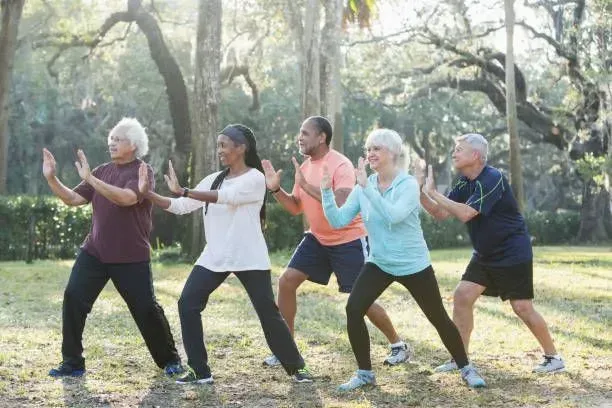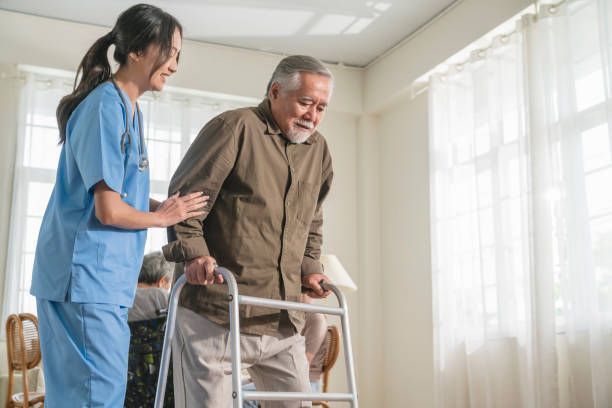5 Amazing Benefits of Tai Chi for Seniors
5 Amazing Benefits of Tai Chi for Seniors
At 7 Day Home Care, we recognize the profound benefits of tai chi for seniors and advocate for proactive health measures and engaging activities to enhance overall well-being. Tai chi, a gentle form of exercise that combines deep breathing with slow, deliberate movements, offers numerous physical and mental health advantages for seniors. It improves balance, flexibility, and muscle strength, significantly reducing the risk of falls—a major concern for older adults. Additionally, tai chi promotes cardiovascular health, alleviates symptoms of arthritis, and enhances mobility. Beyond the physical benefits, tai chi fosters mental clarity and emotional tranquility, helping to reduce stress, anxiety, and depression. Engaging in such productive activities is crucial for seniors, as it keeps the mind and body active, supports cognitive function, and contributes to a higher quality of life. By incorporating tai chi and other beneficial exercises into their routine, seniors can take a proactive approach to their health, maintaining independence and vitality well into their later years. At 7 Day Home Care, we are committed to encouraging and facilitating these positive health practices for the seniors we serve in Manhattan, Queens, Brooklyn, and Long Island, New York.

Enhancing Overall Well-Being With Tai Chi For Seniors
As the aging population continues to grow, it is crucial to explore effective ways to enhance the overall well-being and quality of life for seniors. One such method gaining popularity is Tai Chi, an ancient Chinese martial art that combines gentle movements, deep breathing, and meditation. At 7 Day Home Care, a trusted provider of in-home care services in Brooklyn, Manhattan, Queens, Nassau County, and Suffolk County, we recognize the immense benefits that Tai Chi offers to seniors. In this article, we will review some of the research-backed advantages of Tai Chi and its positive impact on senior health and independence. 7 Day Home Care is licensed by the New York State Department of Health to provide in-home care services in Manhattan, Queens, Brooklyn, Nassau County, and Suffolk County, New York.
1. Tai Chi Enhances Balance and Prevents Falls:
According to a study published in the Journal of the American Geriatrics Society, practicing Tai Chi reduces the risk of falls among seniors by up to 43%. The slow and controlled movements, combined with weight shifting and posture training, significantly improve balance, stability, and coordination. The National Institute on Aging also supports these findings, stating that Tai Chi can reduce falls by improving muscle strength, flexibility, and proprioception.
2. Tai Chi Promotes Cardiovascular Health:
Tai Chi offers a low-impact aerobic exercise that improves cardiovascular fitness without placing excessive stress on joints. A study published in the British Journal of Sports Medicine revealed that regular Tai Chi practice leads to a reduction in blood pressure and heart rate. The American Heart Association acknowledges the cardiovascular benefits of Tai Chi, emphasizing that it can help reduce the risk of heart disease, stroke, and other cardiovascular conditions.
3. Tai Chi Relieves Chronic Pain:
Seniors often experience chronic pain due to conditions such as arthritis and musculoskeletal disorders. Tai Chi has been proven to be an effective complementary therapy in managing pain. In a study published in the New England Journal of Medicine, researchers found that seniors who practiced Tai Chi experienced a significant reduction in pain severity and improved physical function. The Arthritis Foundation recommends Tai Chi as an integrative approach for alleviating joint pain and stiffness.
4. Tai Chi Enhances Mental Well-being:
Tai Chi is not only beneficial for physical health but also for mental well-being. Research conducted at the University of California, Los Angeles (UCLA) discovered that practicing Tai Chi regularly improves cognitive function and reduces the risk of developing dementia in seniors. Additionally, the Journal of Aging and Physical Activity reported that Tai Chi practice reduces symptoms of depression and anxiety in older adults.
5. Tai Chi Boosts Immune System:
Maintaining a strong immune system is crucial for seniors to ward off infections and illnesses. A study published in the Journal of the American Geriatrics Society found that seniors who practiced Tai Chi exhibited improved immune responses and increased antibody production. The slow, rhythmic movements of Tai Chi stimulate the flow of energy and enhance the body's natural defense mechanisms.
With its numerous benefits, Tai Chi has emerged as a holistic and accessible exercise option for seniors seeking to improve their physical, mental, and emotional well-being. At 7 Day Home Care, we recognize the transformative power of Tai Chi in promoting independence and quality of life for our clients. Consider embracing the art of Tai Chi and embark on a journey towards better health and vitality in your golden years. 7 Day Home Care provides in home care services in Brooklyn, Manhattan, Queens, Nassau County, or Suffolk County, and our dedicated team of caregivers will gladly support your interest in incorporating Tai Chi into your daily routine. Call us at 516-408-0034 to learn more about our person-centered care, and client-caregiver matching methods.
Brian Callahan
7 Day Home Care

Living With Parkinson’s Disease: How In-Home Care Helps Seniors Stay Safe, Independent & Comfortable









